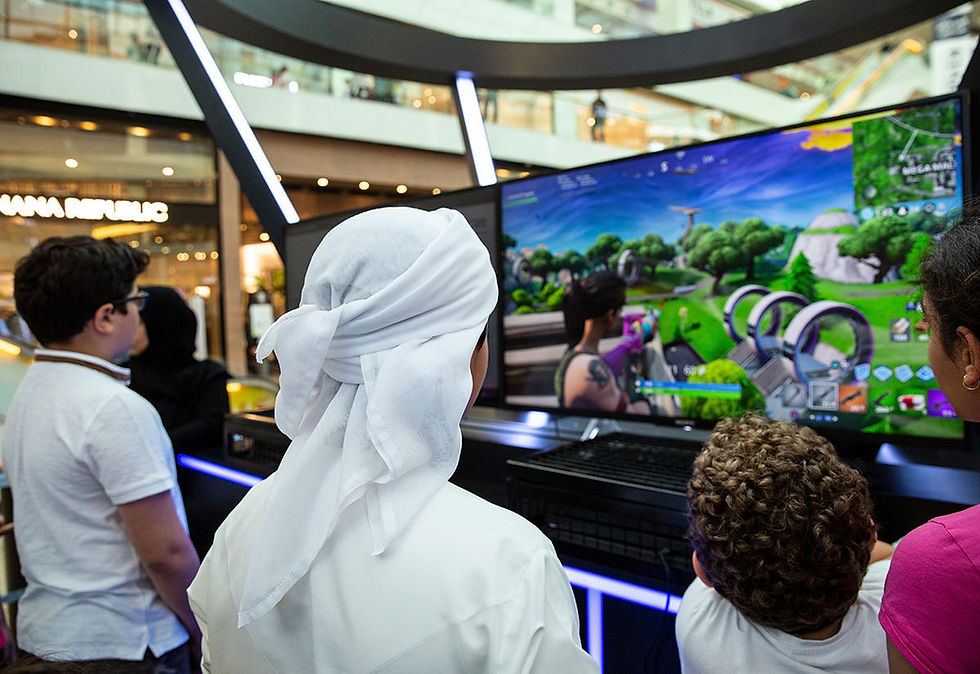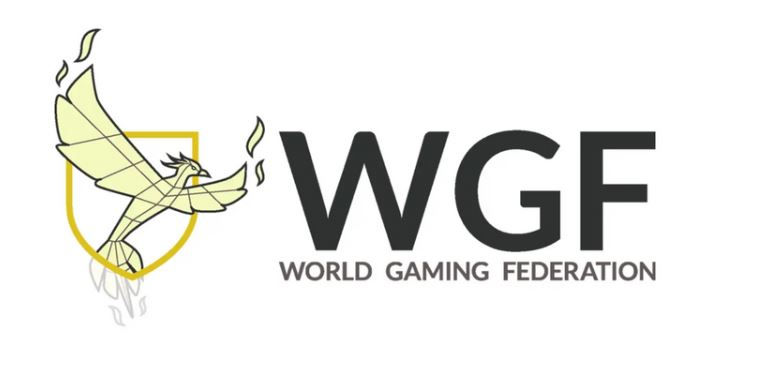The GCC gaming opportunity
- Oct 17, 2020
- 6 min read
Updated: Oct 18, 2020
Esports have surged in popularity so GCC telecom operators are ideally placed to capitalise on this flourishing market

Given its meteoric rise in recent years, it hardly seemed feasible that the video gaming industry could grow at an even faster pace. The COVID-19 pandemic has put paid to such a lack of imagination. With so many confined indoors, a remarkable one in five of the world’s population, some 1.5 billion people, have been playing video games every single day.
Esports have surged in popularity, as have cloud gaming platforms. GCC telecom operators are ideally placed to capitalize on this flourishing market. To do so, they need to upgrade their infrastructure, form cloud gaming partnerships, capture the eSports opportunity, and invest in localizing content and developing games.
Gaming activity has skyrocketed during enforced lockdown. Verizon reported a 75% increase in online gaming during peak hours in the U.S., while stc recorded a 300% growth in gaming traffic in Saudi Arabia. The live streaming game platform Twitch clocked up three billion hours of gaming in the first quarter of 2020—its largest quarter ever. Hordes of customers hungry for gaming entertainment have devoured new releases. Newzoo now forecasts that annual global gaming revenue will reach over $200 billion by 2023, almost double the $118 billion figure of 2018.
The gaming industry has responded energetically to the surge in consumer demand. It has launched new eSports events and leagues, while streaming companies have rushed to generate and distribute fresh content by signing lucrative deals with their biggest content creators. The pandemic forced some professional players and leagues to move online. For example, Andy Murray and Rafael Nadal participated in the Mutua Madrid Open Virtual Pro, which replaced the Madrid Open tennis tournament this year.
Cloud gaming platforms have also proliferated in recent months, exemplified by Facebook launching a dedicated gaming app to take on Twitch and YouTube. This rise in cloud gaming has been accelerated by the rapid modernization of the supporting infrastructure. For example, the UK telecom company BT has formed a partnership with Google to provide cloud gaming.
Meanwhile, industry players are planning major investments in product pipelines and mergers and acquisitions to consolidate intellectual property and grow, most notably in “hypercasual” games which boomed during lockdown. Also, new development companies, such as Sandsoft in Saudi Arabia, have emerged.
Games have now become prime venues for social events. For example, rapper Travis Scott opened his Astronomical Tour on Fortnite in April to an audience of 27 million gamers. Moreover, brands such as Nike and Louis Vuitton are continually innovating with their in-game advertising models, offering paid virtual apparel for avatars.
With their large customer base, infrastructure, and marketing and analytical capabilities, GCC telecom operators should leap at these opportunities. They can also gain by creating, distributing, and marketing eSports content, for example through investing in brand sponsorships and advertising.
Although they have made some ventures into eSports, GCC telecom operators have limited themselves to upgrading gaming infrastructure. For example, Etisalat has partnered with Microsoft and i3D.net to enhance the gaming experience, while stc joined forces with Activision to host dedicated servers for “Call of Duty” throughout the Middle East.
There is a risk, however, that focusing solely on infrastructure improvements could be an own goal. By only looking at infrastructure, operators will help other companies reap the benefits of gaming, while they are reduced to spectators. Instead, operators should use gaming to monetize their infrastructure investments.
Take cloud gaming, for example. Cloud gaming relies heavily on the introduction of 5G because it needs high-speed, low-latency networks. As they are deploying 5G, operators can form partnerships with cloud gaming companies, grabbing the prize with both hands. That way, operators could allow their current, and potential subscribers, to enjoy quality gaming on any device.
At the same time, operators should get involved in eSports to bolster their brand among potential customers. As their global counterparts have been doing for some time, GCC operators can first associate themselves with eSports by launching leagues and partnering with eSports organizations and teams. Telkomsel and Garena jointly host the “Indonesia Games Championship 2020” eSports tournament.
They can then immerse themselves by acquiring eSports content and organizations, teams, and players. If they do so early enough, they could make substantial gains if prices and transfer fees soar. Operators can also develop end-to-end capabilities for content production, distribution and localization, all packaged in an integrated platform.
Further down the road, operators can invest in localizing content and developing games, another way to make their brand more attractive to customers. They can develop the necessary capabilities internally or form partnerships with regional developers to adapt global games to fit the GCC’s language and culture. They can also take the reverse approach by joining forces with local gaming companies to create games for the region and the rest of the world.
With gaming growing so rapidly and establishing itself still further as a global cultural force, GCC telecom operators cannot afford to stand still.
How Abu Dhabi plans to make its mark on $4.5bn gaming sector
Waterfront destination Al Qana reveals plan to open eSports hub and VR gaming complex
Al Qana, Abu Dhabi’s waterfront destination, on Tuesday revealed its plan to open the largest eSports hub and VR Gaming Complex in 2021.
Pixel is set to be the latest evolution of location-based entertainment (LBE) and will cater to families, gamers and technology enthusiasts. The announcement comes as gaming industry revenues are estimated to be larger than those of worldwide box offices, music streaming and album sales and major sports leagues combined.
According to regional industry reports, gaming in the MENA region is estimated to be a $4.5 billion business with the number of Middle East gamers believed to be more than 100 million and close to 2.5 billion worldwide.
A memorandum of understanding (MoU) has been signed by Fouad Mashal, CEO of Al Barakah International Investment and developer of Al Qana, and Karim Ibrahim, CEO of Robocom VR.
Under the deal, Robocom VR will be the sole provider of the content and technology for the Pixel Gaming Hub while Al Barakah International Investment is the key developer of the project.
The companies said the concept of Pixel will introduce a "world-class eSports hub combined with virtual reality in one single gaming complex".
Pixel will also include the first certified eSports academy in the region with the mission of highlighting the importance of playing responsibly. The hub will also feature an events space to host tournaments as well as an arcade area that will be run by gamers for gamers.
Mashal said: “In line with our vision to bring world-class experience to Al Qana, our partnership with Robocom VR will position Pixel as one of the most sought-after VR and eSports destinations in the UAE.”

Ibrahim added: “There’s a constant demand for new and diverse location-based entertainment centres that fit the global standards across the Middle East. With Pixel, gamers will have a chance to fully immerse themselves into new dimensions of gaming.”
Al Qana has assigned 50 percent of the leasable area to entertainment. The project is on track for construction completion in 2021 with over 90 percent currently complete.
When complete, it will offer waterside eateries, the largest standalone cinema in Abu Dhabi, the Middle East’s largest aquarium, a first-of-its-kind lifestyle hub including wellness facilities, kids’ zone and community spaces. Al Qana, Abu Dhabi’s waterfront destination, on Tuesday revealed its plan to open the largest eSports hub and VR Gaming Complex in 2021.
How to participate and profit from the tremendous growth in the esport industry
A unique investment opportunity
Swiss Finance Partners Group is indeed pleased to introduce to you one of the most promising European startups in one of the most dynamic and exciting industries
" World Gaming Federation ", an esports company specialized in everything about this exciting new industry.

If we are indeed so excited about this opportunity, it is simply because the choice of this company is really about our constant desire to always bring new & alternative investment opportunities to our clients; so that they might be in a position to balance out their traditional investment portfolios with companies not only original, but foremost being able to balance out the risk of any classic investment portfolio.
Therefore, in the present case, we have selected not only a company with great future perspectives, but much more a company which in the present economic climate is indeed ideally positioned to profit not only from current conditions with respect to physical distancing and ever-growing online activities, but even much more from global social trends which are here to stay for the long run.
World Gaming Federation (WGF) is indeed a French startup specialized in the "esports" market, operating already in more than 15 countries and it is certainly noteworthy that the company has been named by the European commission as one of the most promising startups in recent years.
The company support brands, companies and institutions in their esports projects and helps them reach the huge audience created by worldwide esports with its already 2.5 billion active players and spectators.
Therefore it develops adapted solutions allowing each actor to reach its own objectives: digital platforms, marketing, organization of video game events and esports competitions, consulting, attractiveness of cities, data.
Its technological developments such as "Playce" and "Player Tag" are at the heart of the company's strategy to establish an international platform grouping all activities around the esports market place.
· PLAYCE: Is an exlusive technology for the creation of white label esports tournament platforms for brands and public bodies: tournaments, communication, data and professional tools. ( https://playce.gg/ )
· PLAYER TAG: Is the application for the aggregation of tournament data from all our players in a single space in order to structure the careers of players and their data.

























Comments